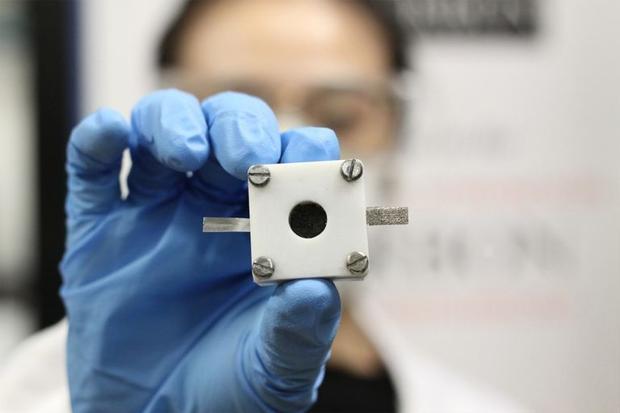If, as the infamous cartoon in the New Yorker proclaimed, “Money is life’s report card,” Jeff Engler’s Wright Electric got a least a B+ for its current semester. While not as flush with cash as firms like Joby Aviation, eHang, or Volocopter, Wright received significant recognition for its initiative in designing high-efficiency electric motors with a high-frequency inverter and “an aggressive cooling strategy.” The $647,039 ARPA-E grant will further Wright’s work on the ARPA-E ASCEND Project. ASCEND stands for Aviation-class Synergistically Cooled Electric-motors with iNtegrated Drives, a sure-fire Scrabble winner and pretty tortuous acronym. Phase one of the project takes the team through the detailed design and subcomponent testing for the system. Phase two will see Wright build and demonstrate the system. Only a startup in 2017, Wright Electric has managed to partner with easyJet, a European budget airline, to develop a 186-seat electric aircraft called Wright 1. With others in startup mode flying six and ten-passenger aircraft and looking …
DOE Promotes Carbon Neutrality Aeronautically
Both GreenCarCongress.com and CleanTechnica share information about the Department of Energy’s funding of 17 projects in two Advanced Research Projects Agency – Energy (ARPA-E) categories. Prepare for the inevitable rush of acronyms. All the projects seem to be reserved for applications on single-aisle short- and intermediate-range airliners, with emphasis on economy of operation, carbon neutrality and lowest possible emissions. ASCEND Powertrain related, ASCEND (Aviation-class Synergistically Cooled Electric-motors with iNtegrated Drives) will fund nine projects with $14.5 in Phase 1 money. Funds will help recipients, “Work to develop innovative, lightweight, and ultra-efficient all-electric powertrain with advanced thermal management systems that help enable efficient net-zero carbon emissions for single-aisle passenger commercial aircraft.” Raytheon Technologies Research Center has three projects in two ARPA-E categories, including their own Ultra-Light, inTegrated, Reliable, Aviation-class, Co-Optimized Motor & Power converter with Advanced Cooling Technology (ULTRA-COMPACT) for which they received $2,330,13. Their system will incorporate advanced materials and techniques in permanent magnets, drive topology, thermal management, and composite gearboxes. Marquette …
Recharging Technique Makes Zinc-Air Batteries a Viable Alternative
Lithium-ion and lithium-polymer batteries face several problems: they are not making great leaps forward that we hope for, they occasionally burst into flame, and they weigh too much to be all that practical in a pure-electric airplane. Researchers peer over the alternatives, magnesium, manganese, aluminum, and now, after several false starts in recent years, zinc. University of Sydney scientists claim to have found a three-stage method of charging zinc-air cells that promises greater energy density and longevity. One selling point – the relative abundance and low cost of zinc, such cells are cheaper to produce than lithium equivalents. They theoretically can store up to five times more energy than lithium-ion cells, are less prone to burst into flame, and are even more environmentally friendly. What’s not to like? Until now, they’ve been difficult to recharge. ReVolt tried developing a rechargeable zinc-air battery with an ARPA-E (Advanced Research Projects Agency – Energy) grant, but gave up after two years. Explaining that …
BASF NiMH Battery Rebirth?
BASF, according to Wikipedia, “is the largest chemical producer in the world and is headquartered in Ludwigshafen, Germany. BASF originally stood for Badische Anilin- und Soda-Fabrik (English: Baden Aniline and Soda Factory). Today, the four letters are a registered trademark….” With ongoing research into increasing energy storage capabilities of nickel metal hydride (NIMH) batteries to rival or exceed that of lithium batteries, BASF could make breakthroughs in building a safer, lower-cost battery. Using an Advanced Research Project Agency – Energy (ARPA-E) award of $3.8 million, the company is working on a project titled, “High Performance NiMH Alloy for Next-Generation Batteries.” Funding applies through February of next year. ARPA-E’s project description lists some of the anticipated benefits of “these new battery chemistries,” including better energy density allowing up to three times the driving range of current products, prevention of overheating, and immunity to catastrophic failure. The improved NIMH batteries could be “incorporated into the structure of a vehicle to improve strength in some cases. Much of this can be accomplished at a 30% lower …
Transformative EV Range Expansion?
In what may be eventual good news for future electric aviators, the U. S. Department of Energy (DOE) Advanced Research Projects Agency – Energy (ARPA-E) will award approximately $36 million to 22 projects to develop transformational electric vehicle (EV) energy storage systems using innovative chemistries, architectures and designs. ARPA-E also uses the term, “revolutionary.” The series of awards is part of the RANGE program (Robust Affordable Next Generation Energy Storage Systems), intended “to enable a 3X increase in electric vehicle range (from ~80 to ~240 miles per charge) with a simultaneous price reduction of > 1/3 (to ~ $30,000). If successful, these vehicles will provide near cost and range parity to gasoline-powered ICE vehicles, ARPA-E said.” “Transformational” comes straight from the CAFE phrase book, a hoped-for direction that goes beyond evolution to revolution in what comes next. A 3X battery at 1/3 the price would certainly be transformational, especially in aircraft use, making even ultralights plausible, and Light Sport Aircraft truly functional. …
Engineered E. coli Mass Produce Key Precursors to Potent Biofuels
Hearing of E. coli outbreaks usually makes us reconsider our fast-food dining choices. Other possible, friendlier uses for the pesky bacteria, though, could show the way to clean energy production, making a “gasoline-like biofuel,” according to Harvard Medical School and Wyss Institute researchers. According to Harvard’s news release, “New lines of engineered bacteria can tailor-make key precursors of high-octane biofuels that could one day replace gasoline, scientists at the Wyss Institute for Biologically Inspired Engineering at Harvard University and the Department of Systems Biology at Harvard Medical School report in the June 24 online edition of Proceedings of the National Academy of Sciences. “’The big contribution is that we were able to program cells to make specific fuel precursors,’ said Pamela Silver, Ph.D., a Wyss Institute Core Faculty member, Professor of Systems Biology at Harvard Medical School, and senior author of the study.” Gasoline has yet to be knocked off its top-fuel pedestal because synthetic, cleaner alternatives are often less powerful. …



